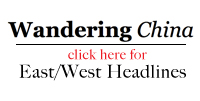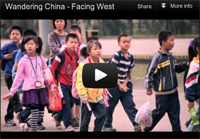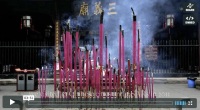According to US media reports, 250 ads targeting China were aired in just under half of the 100 competitive districts, such as in Pennsylvania.
This is the single biggest threat to Chinese public diplomacy; and peace between the world’s most important bilateral relationship. This would be far from good news, and I was forewarned about this (thanks Bennett) and what needs to be understood is simple. In China, very few of the everyday Chinese I met have anything bad to say about America. If anything, they appreciate and see the American dream as one to emulate.
This might be a bad omen if the bridges built on social, cultural, economic cross-pollination between East and West continue to be burnt in this way by mere political wars. And who gains from this short-sighted internal political war based on a media ruse? Only the politicians that seek division as leverage, not the rest of us.
– – –
Fear of the Asian giant played a cameo role in America’s bipartisan wars
by Maria Siow
Source – Today Online, published November 09, 2010
In the days leading up to the mid-term elections in the United States, I was glued to the television set here in Washington, especially during primetime, hoping to catch some of the political ads aimed at demonising China and inducing fear among Americans about the rise of China.
Many of these ads ascribed dubious if not outright unpatriotic qualities to candidates said to have helped create jobs in China instead of America. Playing to voters’ anxieties about the outsourcing of jobs, some ads argued that by opting for economic stimulus and healthcare reform, the Democrats have plunged America into greater reliance on China credit.
Taking China-bashing to new heights, one commercial titled Chinese Professor – slickly produced presumably on a liberal budget – depicted a Chinese classroom set in 2030 festooned with posters of Mao Zedong. The professor asked a roomful of students why the US had declined alongside the Greek and Roman civilisations. Blaming America’s downfall on stimulus spending and the costs of healthcare reform, the professor prompted uproarious laughter when he concluded that excessive American borrowing meant that “Americans now have to work for us” since China owned US debts.
But despite days of keeping a close vigil by the television, I was disappointed. All I saw were countless mudslinging ads between candidates, such as those by Maryland’s Martin O’Malley and Robert Ehrlich. I was also inundated with innumerable ads on prescription drugs that purport to soothe ailments ranging from diabetes to asthma and over-active bladders. But I did not manage to catch a single anti-China commercial. Maybe I just did not tune in at the right time; I ended up watching the ads online instead.
I asked my American colleagues and friends about the dearth of such television commercials in the Washington metro area where I live, and one explanation was that the area consists of “mostly educated people”. I took that to mean people who would not be easily swayed by sensationalist ads – hence political campaigners would have seen little point in wasting their time, money and effort on this demographic. According to US media reports, 250 ads targeting China were aired in just under half of the 100 competitive districts, such as in Pennsylvania.
Another explanation was that the anti-China ads were mainly televised in areas where unemployment rates were higher, such as Michigan and Ohio with around 13 and 10 per cent unemployment, respectively, higher than the national average of about 9 per cent.
What scares America?
Speaking of anti-China rhetoric, a colleague brought to my attention a somewhat peculiar Google feature. Once you type in a word, even a letter, Google will prompt you with a list of suggestions, which has the effect of either improving your efficiency by having to type fewer words, or irritating you with its smart alec behaviour, or both.
If you type in “I’m scared of …”, top on the list of the search engine’s suggestions is “Chinese people”, followed by “driving”, “dying” and “2012”. I am clueless as to why this is so and am uncertain if this Google feature can be found outside the US.
But the point is that in this election characterised by record spending and an outcome described as a political tsunami, the anti-China rhetoric was just one of the many issues and voices which had emerged and is nowhere close to dominating national headlines – and rightly so.
The election was principally about Americans’ frustration with the pace of economic recovery and the high levels of unemployment. The “shellacking”, in the words of President Barack Obama in the aftermath of the election, is a loud and unequivocal censure that the Democrats should have focussed on fixing the economy rather than trying to undertake ambitious healthcare reforms and other policies that were out of step with the sentiments of ordinary Americans. The election was also about putting a stop to what some see as out-of-control federal spending and over-regulation of the economy.
Sure, there is a shift in the US towards a more fearful view of China that stems from a perception of American decline. But there is also the acknowledgement that America needs to put its own house in order by spending less and saving more, in order to tackle China’s ascent.
But of course there is the very real fear that even though the anti-China ads are for short-term political exigencies and are as predictable in every US election as annual income tax returns, their repeated broadcast might have the detrimental effect of accentuating racial stereotypes, or worse, moving from the political to the more mainstream social and cultural arenas.
The writer is Channel NewsAsia’s East Asia bureau chief and a visiting fellow with the East-West Centre in Washington.
Filed under: Beijing Consensus, Charm Offensive, Chinese Model, Communications, Culture, Economics, Influence, International Relations, Media, Nationalism, Politics, Public Diplomacy, Soft Power, Strategy, Today Online, U.S.









